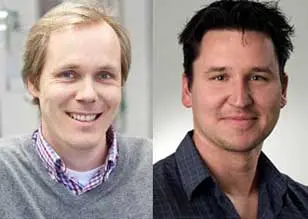Obesity, insulin resistance and diabetes have been proven to be risk factors for a number of cancers. Reversely, metabolic disorders not only promote risk factors for cancer, but they also occur as a result of it. Thus, tumor growth often goes along with extreme loss of weight, a condition called tumor cachexia. These two contrary states ¨C obesity and wasting ¨C are characterized by a multitude of common metabolic properties. This suggests that there are common molecular control points for both processes.
Dr. Stephan Herzig, winner of this year¡¯s Richtzenhain Prize, has focused his research on this particular area. In the process, he identified numerous factors that play a key role in the control of liver metabolism. Thus, they play a direct part in the development of cancer risk factors and cancer-associated effects (cachexia). These metabolic control points can now be studied as targets for new treatment methods.
Biologist Stephan Herzig has headed the Emmy Noether Junior Research Group ¡°Molecular Metabolic Control¡±, which was turned into a department last July, at DKFZ since 2003. For his scientific work Herzig has been distinguished with numerous awards including the Marie Curie Excellence Award of the European Commission, the Ferdinand Bertram Prize of the German Diabetes Society and the Research Award of the German Obesity Society.
The 2010 Emil Salzer Prize will be awarded to Professor Dr. Florian Greten, who is a research group leader at Klinikum rechts der Isar of Munich Technical University. He investigates the connection between inflammatory bowel diseases (colitis) and colon cancer.
Florian Greten discovered that colon cancer growth is promoted both directly and indirectly by an important gene regulator: A protein called NF©\¦ÊB suppresses the death of malignant cells and, at the same time, stimulates specific white blood cells to produce signaling molecules which accelerate tumor cell growth. Thus, Greten was able to show that inflammation-promoting modulators produced by immune cells boost cancer development.
The Salzer Prize jury particularly commended the high potential of this work for improving colon cancer treatment, because Greten also identified the target molecule of the inflammation-promoting modulators in cancer cells. If this molecule is turned off in mice, tumor growth comes to a halt. Thus, Florian Greten has presented a novel target for the treatment of colon cancer.
The Richtzenhain Prize, which DKFZ awards on behalf of a foundation established by neurologist Walther Richtzenhain and his wife Christine, is awarded annually, alternately to doctoral students at Heidelberg research institutes and to scientists from across Germany for publications in the area of translational cancer research. This year¡¯s prize is worth 10,000 euros.
The Dr. Emil Salzer Prize has been awarded by DKFZ on behalf of Baden-Wuerttemberg¡¯s Ministry of Science, Research and the Arts since 1970. It was founded by Emil Salzer, a physician from Reutlingen, Germany. Salzer left his bequest to the State of Baden-Wuerttemberg under the condition that the proceeds be used for supporting cancer research. The prize money is 5,000 euros.
The award ceremony will take place on Thursday, December 2, at 5 p.m. at DKFZ¡¯s Communication Center (KOZ). Guests are very welcome to attend.
Pictures for this press release are available on the Internet at:
www.dkfz.de/de/presse/pressemitteilungen/2010/images/Greten.jpg
www.dkfz.de/de/presse/pressemitteilungen/2010/images/Herzig_Stephan.jpg
About DKFZ
With more than 3,000 employees, the German Cancer Research Center (Deutsches Krebsforschungszentrum, DKFZ) is Germany’s largest biomedical research institute. DKFZ scientists identify cancer risk factors, investigate how cancer progresses and develop new cancer prevention strategies. They are also developing new methods to diagnose tumors more precisely and treat cancer patients more successfully. The DKFZ's Cancer Information Service (KID) provides patients, interested citizens and experts with individual answers to questions relating to cancer.
To transfer promising approaches from cancer research to the clinic and thus improve the prognosis of cancer patients, the DKFZ cooperates with excellent research institutions and university hospitals throughout Germany:
- National Center for Tumor Diseases (NCT, 6 sites)
- German Cancer Consortium (DKTK, 8 sites)
- Hopp Children's Cancer Center (KiTZ) Heidelberg
- Helmholtz Institute for Translational Oncology (HI-TRON Mainz) - A Helmholtz Institute of the DKFZ
- DKFZ-Hector Cancer Institute at the University Medical Center Mannheim
- National Cancer Prevention Center (jointly with German Cancer Aid)
The DKFZ is 90 percent financed by the Federal Ministry of Education and Research and 10 percent by the state of Baden-Württemberg. The DKFZ is a member of the Helmholtz Association of German Research Centers.
